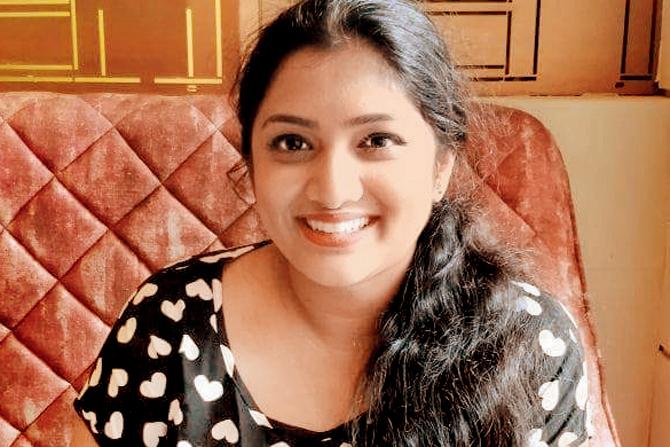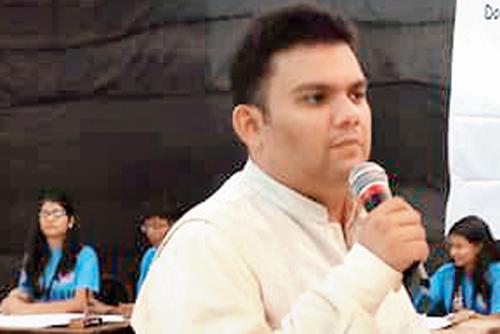While the shrinking middle class represents a pipe dream for younger generations in rich countries, few millennials in India understand basic financial parameters. We dig into the reasons why

Illustration/Uday Mohite
It is often said that you should never underestimate a baby boomer's ability to keep saying, "When I was your age, I did x the amount of work you're doing right now" - even if your millennial tongue only said, "Hello." But the next time you hear the sentence, you can flash the latest OECD report that carries the news flashy title, Under Pressure: The Squeezed Middle Class.
Released last month, the report states that in rich countries, the middle-income group (households earning between 75 per cent and 200 per cent of the median national income) has grown smaller with each successive generation - 70 per cent of baby boomers were part of this group in their twenties in comparison to 60 per cent millennials (people born between 1983 and 2002) today. The challenges include job insecurity, indebtedness and the rise of automation. India isn't an OECD member nation. In April, it became the only country to score more than 7.3 on the Aegon Retirement Readiness Index in comparison to a global average of 5.9. But only 22 per cent of the millennials surveyed knew the meaning of the three key parameters - compound interest, inflation and risk diversification - in financial planning. We speak to millennials and experts to understand why money management is often an afterthought.
ADVERTISEMENT

Time is money
Though Sneha Nair, a Mumbai-based operations analyst, calls herself a spendthrift, she still realises the importance of saving and investing - a practice stressed upon since childhood. The 25-year-old now invests in primarily three areas - mutual funds (MFs), fixed deposits (FDs) and life insurance.
"The thumb rule is that you need to invest depending on your short and long term financial goals, but honestly I haven't really thought about it. Time is a huge challenge, and though I have the resources and knowledge to plan my own finances, I rely heavily on my family's financial planner. Being brought up in a middle-class family with my father working in income tax and my mother in banking, we're not very open to investing in equity markets - commonly called 'riskier investments,'" she says, adding, "It's just the mindset that I might suddenly lose all of it if the market crashes that prevents us from doing this. That's why even though FDs provide a meagre rate of interest, I'd rather put my money in a bank."

A need for diversity
I honestly don't think I 'manage' money. I have a money tracker app which I use but I almost always forget to feed the information in. The only thing that I make sure to do is have a certain amount of money in my account at the end of the month, which is generally ten thousand," says 23-year-old communications professional Sarojini Pradhan. She also highlights the paucity of financial courses conducted in the classroom for those who come from the humanities background. "Research helps but only to some extent. Even if I want advice, there are very few people I can talk to. I feel we aren't even told how important saving or managing money is. Most people our age, from what I've seen, aren't even thinking of saving money; all they don't want is to be broke by the end of the month," she adds.

Invest and then save
Subin Mitra, 22, who now works at a consulting firm, interned with a finance company when he was 17. "But I started reading up to get the basics right - books like Benjamin Graham's The Intelligent Investor and Investing Under Fire," he shares.
Even though Mitra graduated with an Economics degree in Mumbai, there was little scope for practical knowledge. "It is critical to try investing yourself. I started when I was 18. It helps you stay constantly updated and gives you an inherent sense of analysis. For instance, if I read about a factory shutting down, I would correlate that to what impact it would have on my investments," he tells us. Mitra advises beginners to start with making a mock portfolio online. "I also spend after I save. Make sure you have a Systematic Investment Plan (SIP) where money is deducted at the beginning of every month, and spend the amount you are left with. And lastly, don't invest in something because someone else is doing it. So, even if you're wrong, you can probe into it and understand why."

Eye on the ball
Advertising professional Shounak Guhathakurta, 34, bifurcates his funds into short term and long term. "The former is a holiday fund as my wife and I like to do one big trip every year. But financial planning for me has mostly been about tax saving. As soon as you hit a figure of 10 lakh [per annum] and you realise you're going to be paying 30 per cent as tax, you need to figure out where to invest that in," he says, adding that he started the process when he was 25. With two individuals working, Guhathakurta says a diverse portfolio becomes a sort of a hedge. "We aren't people who time the market. Our SIPs are automated. If you get too obsessed, you will lose sight of what is more important i.e. your actual job and the salary that it brings in".

Don't do what your parents did
The biggest challenge for millennials today is to deviate from the path that the previous generation has followed," says financial advisor Snehdeep Fulzele, who is also the author of Die Poor or Live Rich. "I'm 52 and my generation deviated from government jobs, while people like my father valued security over returns. The biggest asset that a millennial has today is time. They need to use it and be fearless."
Little effort: MFs are the best way to go about financial planning. Start immediately as soon as you have money. MFs require you to invest as little as Rs 500 a month.
Take calculated risks: You need to realise that if you just keep your money in savings, inflation will kill all of it. There's also a difference between personal inflation and government-declared inflation. If you have more dependants, then inflation for you will be higher than for people who just have to support themselves. Focus on your own area of expertise. Take the consultation of an expert, pay that extra charge - it's just like going to a doctor.

All about inclination
According to financial trainer and mentor Purv Shah, planning is a 40-year-old process. Shah, who also conducts courses at academic institutions, says that one must have an inclination to build money. "It's not something we talk about at the dinner table. Formal education is doing very less and even people from commerce backgrounds don't know the basics. When I would pitch workshops on this to engineering colleges, they would often turn me down. And now, fintech is the buzzword," he reveals.
Keep check: MFs aren't always safe and one must keep track of the fund manager and check what they have done in the past. Don't focus on only the "branded" funds.
Tone down spending: People who don't engage in planning become big spenders. The minute you delay this, the power of compounding goes out of the window.
Don't rush into stocks: Unless you know the market, don't venture into the stock market. It takes a lot of personal effort to build money and you can't forget to live in the process.
Catch up on all the latest Mumbai news, crime news, current affairs, and also a complete guide on Mumbai from food to things to do and events across the city here. Also download the new mid-day Android and iOS apps to get latest updates
 Subscribe today by clicking the link and stay updated with the latest news!" Click here!
Subscribe today by clicking the link and stay updated with the latest news!" Click here!







